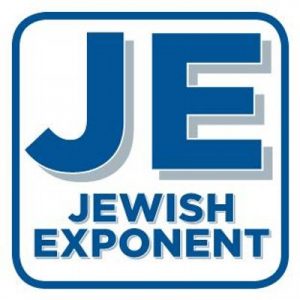iCenter Fellowship Encourages Broader Approach to Education About Israel
April 26th, 2017
You know iPhones, iPads and iTunes — now meet the iCenter.
Although the name could easily be that of a new Apple product, the “I” in iCenter stands for Israel.
The iCenter, a North American nonprofit based in Chicago, provides learning opportunities and tools for Jewish education professionals to enhance Israel education.
There are more than 150 iFellows across North America who participated in the iCenter fellowship, a yearlong master’s concentration program in Israel education.
The goal of the program is to fashion an approach to Israel education grounded in a complex understanding of modern-day Israel and its history, combined with an inventive educational methodology.
The program includes three intensive seminars in Chicago, the guidance of a mentor and a trip to Israel.
Anne Lanski, iCenter executive director, said the program provides learning materials to graduates to continue promoting education on the Jewish state, but sometimes the first thing they help graduates with is finding a job in Jewish day schools, synagogues or summer camps.
The iCenter approach to Israel education, she said, is relational.
“Excellent education is excellent Jewish and Israel education,” said Lanski, which she added ensures strong Jewish identities and a future for the Jewish people.
By equipping these fellows with the right tools and knowledge to teach Israel education, the iCenter makes Israel an organic part of children’s education and who they are, she said.
“In the days before the iCenter, you could go into a day school and say, ‘OK, if I register my children here, where is he going to learn about Israel?’ And normally, they would say, ‘11th grade, second semester.’ And Israel Independence Day and maybe one other place,” Lanski said. “As a result of our students, the learning that they’re doing, Israel is infused throughout everything in the school.”
Michael Soberman, iCenter senior educational consultant for Israel education, runs the iPods program, which determines how to integrate Israel education into different communities, or pods, across North America.
Two local iFellows, Terri Soifer and Ben Rotenberg, completed the iCenter fellowship and are doing just that in Philadelphia.
“Our belief is that the more people in the Jewish educational, communal world who understand our approach to Israel education will find a way to take what they’ve learned and apply it to their setting in a way that suits what that particular setting it,” Soberman added.
Soifer, community engager at Temple Beth Zion-Beth Israel, used her studies with the iCenter to incorporate Israel education into workshops with the Center City Kehillah.
The Jewish Federation of Greater Philadelphia awarded the Center City Kehillah a grant to do a series of professional development workshops last fall and winter.
As Soifer earned her master’s degree in Jewish education from the Jewish Theological Seminary of America while doing the iCenter concentration in Israel education, she thought the iCenter’s ideas would be a good fit.
“Israel is a much different subject” than what the Kehillah usually covers, she said, “so there was this uncertainty of how to move forward.”
But because she was familiar with the iCenter, she suggested using its resources to become a “community of practitioners and use this grant to use some of the iCenter’s ideas.”
She led two workshops in which the group talked about encounters between Israelis and non-Israelis as part of the Israel experience, as well as Israel from a personal standpoint.
People brought in a picture or an item that they associated with Israel and shared the stories behind them.
“It was a nice way for people to start to talk about Israel in this very relational, emotional approach where there’s not exactly right or wrong,” she noted.
“The biggest misconception is that everything needs to start with politics in Israel,” she continued, “and sometimes we don’t always take a moment to think of the educational best practice. We just jump right into what is the hot-button issue that we think people want to hear about. So what the iCenter is really great at doing is giving these tools and resources … to approach it in a space where people can share different perspectives.”
Rotenberg’s role with the iCenter differs from Soifer’s. His work takes a more direct approach: He is a Jewish studies teacher at Perelman Jewish Day School.
“[The iCenter is] not specific to one type of institution. It’s a broad approach,” he explained.
Outside of elementary school, Rotenberg often leads classes at synagogues. In the summers, he works at a Jewish summer camp in Massachusetts.
The iCenter’s philosophy on Israel education complements his teaching, he said.
“It’s a meta level at looking at Israel,” he said. “The iCenter is looking to develop the field not through products but through people.”
It’s not about creating content about Israel, but rather bringing together the best education about Israel by producing “thinkers without an objective in mind.”
“Perelman also is starting to talk about Israel education and re-examine what we do and how we teach Israel,” he added.
Before the iCenter, Rotenberg admitted that he had a hard time relating to Israel as a college student. He felt pressure to lean a certain way toward Israel and define himself by it, which forced him to “step back rather than step forward.”
“I don’t want my feelings or conversations about Israel with my friends or family to define who I am as a Jew,” he recalled of his initial feelings.
But the turning point was the iCenter. Through it and building connections with people, it helped him see the Jewish state differently.
“Israel is not just a place. It’s an idea and it’s a framework for building deep connections to community,” he said. “That’s a gift that the iCenter gave me, this new perspective and new framework to really think about Israel that way.”
Contact: [email protected]; 215-832-0737